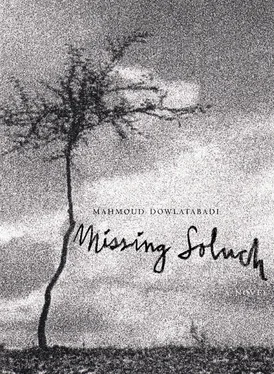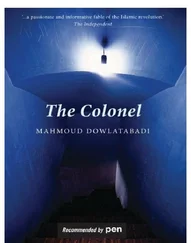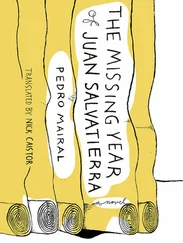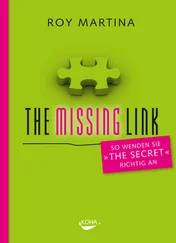Salar Abdullah had called for Sanam’s sons, and they had now come and were sitting beside the pool. Asghar Ghazi had a long neck and bony shoulders, a thin upper body, and a mole on his chin. He looked at the ground and played with pebbles in his hand, saying, “No, no. I’m a farmer here. I’m not the kind to take any other work. I’m staying in Zaminej. I’m busy here with my plot here, and in the end, I keep a couple of the watermelons just to wet my dry mouth with.”
“To repay you, we’ll get the best opium from Kadkhoda Norouz to give you; that’ll be your repayment. In the opium den you and your mother run, you can make a living from that.”
“No, Salar! I’d rather buy the opium from the Kadkhoda with cash. You can count on it!”
“So why isn’t Morad choosing to drag his feet like this?”
Morad looked at his brother.
Ghazi said, “No, my case is different from Morad’s, Zabihollah. Morad isn’t meant to stay in Zaminej. His heart isn’t here. He wants to leave. He needs to pay for his travel. But as for me … where could I go? My mother and I aren’t able to leave like him! Morad has wanderlust; he’s young, he’ll be fine anywhere he goes and whatever he does. But let a cold wind blow in my face and I’m sick in bed for a month. And my mother’s worse. So we’re both fated to stay here. We’re stuck with this land, Salar!”
Zabihollah placed a cup of tea before Ghazi and said, “Drink. Your mouth must be dry like wood now! You’re smoking a lot, man! You’ve become like a pipe yourself!”
Salar Abdullah looked at Mirza Hassan and said, “So, you’ll pay Morad’s way, yes?”
Mirza Hassan said, “Sure. I’ll pay for his travel!”
Morad looked at his brother and said, “My voice has gone hoarse from telling you to lend me what I need for me to go! I’ll give you my part of the land, and I’ll repay you the money later. I’ll go and work, and I’ll send you the money. If I don’t pay any of my other debts, I’ll be certain to pay off my debt to you. But you’re so cheap! Well … now what should I do? Will you lend me what I need or shall I sell my share of the land to these people?”
Ghazi sipped the tea and said, “You keep saying ‘give me’! No one’s at your neck with an axe, but all you want is to extort from me!”
“I want to extort from you? You poor little lamb, who are you for me to extort from you? All I want is a little money to pay for my travel, in exchange for giving you my share of the land. That’s extortion?”
“What share of yours? You keep talking about this land! How many times in your life have you dug that land with a shovel? Tell me! I’ve worked that land myself. I’ve planted cottonwood around it. I’ve sweated over it, weeded it on hot summer days. I’ve had to struggle just to pick a handful of watermelons from the melon patch — where were you on those days? Just because we came from the same belly, you think everything I own is also yours?”
“Everything you have? Tell me again, what do you own, anyway?”
Others had begun to arrive. Those who worked on God’s Land. Asghar Ghazi gave up. He could see the veins on his brother’s neck beginning to bulge. Ghodrat’s father also arrived, as did Ali Genav. Hajj Salem and Moslem also showed up. Salar Abdullah invited the new arrivals to sit beside the wall, which they did. Morad rose, along with Asghar Ghazi. Mirza Hassan removed his money pouch from his side pocket and took Morad to one side.
“Do you need anything other than just the cost of your travel? I’ll pay your way directly — but why are you being such a loudmouth?”
Morad said, “Let’s wait for now. Just let it be, Mirza. Later … I’ll … I’ll …”
“What do you care about the good or bad of it? Take this money and go. I’ll make a deal with Ghazi myself — he has to listen to us!”
Mergan called from the doorway, “Hey … Asghar Ghazi! Pay your brother’s travel costs so he can go! That is, if you don’t want your land taken from your own hands!”
“If you’re so worried about him, pay him yourself! The same way you wanted to give your daughter to him!”
“You fool! I’m thinking for you. You’re going to lose your land. He’s your partner in that land, you know.”
“Don’t mix up things! Morad’s not my partner. If he takes money from Mirza Hassan, that’s between them. It has nothing to do with the land. Hey … everyone here! You are my witnesses that Morad has no claim to my land!”
Mergan came out into the yard, her head and body covered with dust and plaster, looking for Asghar Ghazi, but he had just left. She turned and approached Morad, taking him to one side.
“If it’s just money for your travel, I’ll lend it to you. Don’t sell the land!”
“What sweet nothings are you whispering in the ears of our young people, Mergan dear!”
Mergan ignored Salar Abdullah’s interjection, walked to the porch, and then was lost in the room inside. Morad followed in his brother’s footsteps. The partners began haggling over the plots on God’s Land with those who had arrived. Mirza Hassan had written up a document already and had placed it aside for those who worked the land to sign. First of all, he showed the document to Hajj Salem.
“But I don’t own any of God’s Land!”
“But no one does, Hajj Salem. It’s intended to be a petition for the whole village. Everyone has rights here and we want to respect them. So anyone can sign this, or put a fingerprint on it. Moslem, you come here, too!”
Mergan was focused on her own work, but she was monitoring the sounds outside. She could sense the quality of each sound: demanding, unsatisfied, flattering, browbeaten, noncommittal, or indifferent. All the smaller farmers had spread the word that Salar Abdullah and his partners were interested in paying for the land. So everyone was coming; those who worked on God’s Land, as well as those who farmed elsewhere. They were practically begging. Others were lying, but they thought they could snap their fingers and get something. They had nothing to give, save the fingerprints they left on the petition. Shortly, only a few were left haggling with Salar Abdullah and his partners. But there was a solution for this, too. Mirza Hassan had the skills of a diplomat; he could sweet-talk almost anyone. So most, eventually, left satisfied.
Mirza Hassan’s voice was strong and clear.
“What we’re doing is different from when you see ten or twelve half-dying people who don’t even have a shovel between them to dig up the land to try to farm. You can’t even call that farming. It’s more like keeping themselves busy. I’ve seen it; you all know what I’m talking about. Ten people without an ounce of energy or life. Scrambling like ants in different corners of God’s Land, working the scrub for a few days each year, and eventually harvesting a handful of watermelons. And only watermelons! Why only watermelons? Because for a hundred years it hadn’t even occurred to you to try to plant something other than watermelons. And so you’ll go on teaching your children the same things you learned from your fathers. Have you ever thought for a minute that you can plant something other than watermelons on God’s Land? Clearly, no! In any case … even if one of you had thought of it, where are the tools you’d need? How would you prepare the land for planting? You can’t just use your bare hands. You need to spend money on the land! Without investment, it’s useless. I’m saying this for everyone here. But I’m saying this especially to those of you here who have thought that they were sitting on a pot of gold! It’d be good if you listen carefully; land that has no legal deed is the property of whoever makes it bloom. Am I exhausting my voice for no good reason here? Those three or four who are still holding out had better know they have nothing to stand on. We want to move ahead with this in a way that makes everyone happy and satisfied. We have to live as neighbors, so it’s best we’re all in agreement and at peace. I don’t want the outside authorities to be dragged into Zaminej. But I’m afraid some of my partners may be a little inflexible. And those who have deeds to other lands around here should really stop playing the beggar! How long are they expecting to graze donkeys or camels on their bits of land? They really either have to sell up or join our group and have their own part in the partnership. I’m not too polite to say this; my plans for the land have already been accepted by the authorities. Which means the government wants this to go ahead …”
Читать дальше












